What is the noblest of activities in the capitalist society? Yes, Consumption. Only a handful of companies have created more wealth by tapping into consuming selves than retail. The fundamental to the success of these companies is how they have used technology and strategy to understand and appeal to basic human desires. Scott Galloway in his book “The Four – DNA of Amazon, Apple, Facebook, and Google’ equates the Big Four – Google, Facebook, Apple, and Amazon – to the Four Horseman of god, love, sex, and consumption respectively. With our desires in their sights, ‘The Four’ have examined and deconstructed the strategies to make it as easy and rewarding as possible for people to engage with the platform and consume to satisfy the given desire. In Galloway’s thesis, each of The Four appeals to a specific human organ.
- Google targets the brain – our thirst for knowledge.
- Facebook targets the heart – our need to develop empathetic and meaningful relationships.
- Amazon targets the guts – satisfying our hunter-gatherer impulse to consume.
- Apple – focus firmly on our genitals.
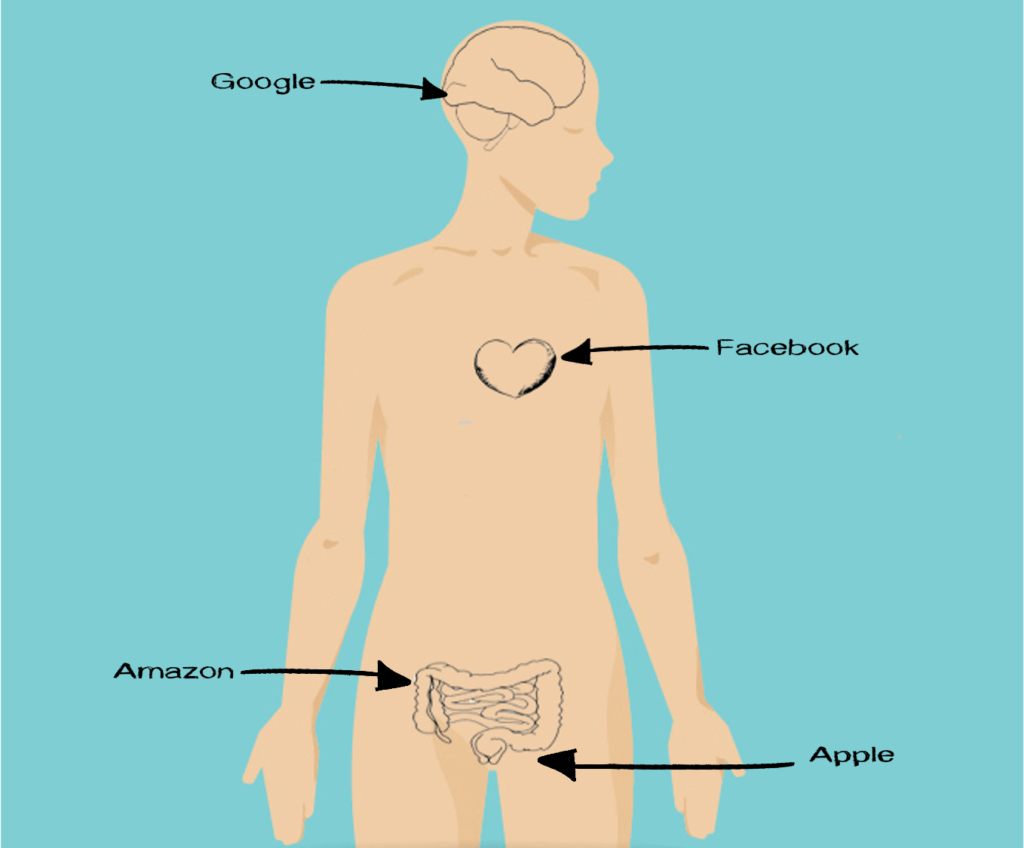
I would have loved to apply the ‘Jobs-to-be-Done’ lens here to see what are the jobs consumers trying to perform, but when we talk about desires – it overcomes the rationality of the mind and simple works on the irrational behaviour of our brain. However, somewhere Google targets the brain where consumers use rational decision making, and Amazon targets partially the brain too via guts – I’ve tried my best to apply JTBD analysis over there. Let’s analyze each company of ‘The Four’ one by one:
Amazon
Humans most basic instinct – hunting and gathering – occupies more than 90% of human history. Cavemen spent 15-20hrs a week hunting and gathering the food they needed to survive. The gatherers, women in most of the cases, were responsible for 90% of the effort i.e. choose, select, store for consumption. Humans have had compulsions to collect for centuries. Amazon appeals to human’s hunter-gatherer instinct. Let’s see how:
The e-commerce opportunity in the late ‘90s: In the 1990s, the e-commerce was not very attractive to users, it was an unrewarding business. Only a few riches were landing to a few existing e-commerce websites, and that too after too much hype created by e-commerce companies. What was the problem? Let’s apply Jobs-to-be-Done analysis here:
As I’ve mentioned in this story, the following is the statement structure for a ‘Job-to-be-Done’:
When (situation) —– I want to (motivation)—— so that (benefit)——
Jobs in this case (‘90s e-commerce) would be:
1: When I want to buy any (book, CD, electronics, etc) on the internet, I want to be able to quickly locate the right product at the right place so that I’m assured of my purchase from the right place.
2. When I want to buy any (book, CD, electronics, etc) on the internet, I want to be able to quickly discover the right product so that I’m assured of my purchase decision later while using the product.
3. When I want to buy any solution to my problem on the internet, I want to be able to search for the right solution as per my situation, so that I’m satisfied with the solution that solves my problem.
Now, all the above 3 job statements look almost the same, but there is a huge difference from the human hunter-gatherer perspective.
In Job statement 1, a user is looking to search for the right product for himself at the right place. He is only trying to look for the best place to buy the product as you can see the end-state for the user is the assurance of purchase from the right place. This is pure hunting instinct – hunting for the product from the right place. Many of the users in the 1990s were trying to perform Job #1 only.
In Job statement 2, the user is looking to discover the right product for himself. He knows the product type i.e. there are many products available that will help him perform his job, but doesn’t know which product is the best i.e. what brand or performance, etc. So he is discovering, and he wants to be assured of his purchase decision while he is using the product post-purchase that it helps him to perform his job perfectly. This is hunter-gatherer instinct – hunting for the right product amongst many options available and right place.
In Job statement 3, the user has a specific problem but doesn’t know what’s the right solution or the right product that solves the solution perfectly. He might be looking for one product or more, to solve his particular problem. He wants to look at all solutions, compare all, and purchase the right one(s) for himself, so that he achieves his end-state i.e. solution to his problem. This is pure gatherer instinct – keeping the right products with proper analysis i.e compare, select/reject, purchase, store for later consumption.
How did Amazon fill the above-mentioned Jobs:
1) [Pure Hunters] Amazon picked the product that hunters in-greater-volume during the ‘90s were looking i.e. books. Users knew what book they had to buy, they were just looking for the right place. Amazon happened to be the right place as hunters buy, take back to their caves and digest the product asap so that hunters can go for their next hunt.
2) [Hunters & Gatherers] Amazon started recommending books in a similar category. Along with more products introduction i.e. CDs, DVDs, Amazon knew the problem of its users and threw the right solutions to them. Amazon started transforming hunters into gatherers.
3) [Pure Gatherers] Amazon created a marketplace with the introduction of many more product lines. Amazon now knew how to solve the problems of the gatherers. (Gatherers are profitable customers as they spend more time on websites & buy frequently). Amazon connected the consumers with the producers in a marketplace where consumers can have many options to buy, the paradise for gatherers. Whereas Amazon focused on leveraging big data and unrivaled knowledge of consumer purchasing patterns, Amazon meet consumers’ need for stuff, without the friction of deciding or ordering.
Throughout time, Amazon realized that cost of customer acquisition in e-commerce continues to rise and consumers’ loyalty to the brand erodes. What did Amazon do – Amazon Prime. Prime members represent recurring revenue & loyalty. It is one of the best customer lifecycle management systems existing across Amazon products. Amazon – Earth’s biggest store has s products across the breadth: zero-click ordering, AI, warehouses within 20 miles, Alexa, Amazon-Go, brick-and-mortar stores, and the world’s most famous consumer brand.
Currently, Amazon is trying to crack the code for selling groceries online, while using the same approach – how to cater to humans’ hunter-gatherer instincts.
Apple
Apple is – simply beautiful, elegant, innovator, sacred. Apple products bespoke luxury. Luxury is not an externality, it’s in our genes. It combines our instinctive need to transcend the human condition and feel closer to divine perfection. In older times, men – thinking with their genitals – would pay irrational prices just to be more attractive to potential mates. Brands that appeal to the genitals are thriving. These organs drive desire and the relentless instinct to procreate. They bypass cognition and love, tying their business to the pleasure-packed ecosystem of mating rituals. A luxury attire wearer signals to a potential partner that he is the most promising, strongest, fastest mate amongst the options potential partner has. Luxury products make no sense on a rational level. Its purely irrational and sexual, and it easily kills the rational signals of the brain.
Apple started out with a head with Macintosh, launched in 1984, had attractive icons and a personalized look that appealed to artists. Artists, who want to create beauty and change the world, simply look at Apple products closer to perfection. Mac helped them to ‘think different’. But finally, Apple migrated further down the torso. With iPods, iPhones, Apple watches – buying the Apple products is like buying a luxury item that triggers an emotion, a boost in serotonin that attends happiness and success.
Apple’s business is to sell people not products, but emotions – being closer to God, being more attractive. The Apple message is clear – it will make you better than your sexual competitors: elegant, brilliant, rich, and passionate.
Most of our actions, including purchases – are driven by emotions. It’s always easier, fun, and happier for consumers. The heart is also powered by the greatest force in history – love. Products that cater to the heart – are beautiful, patriotic, masculine, devoted, and loved. Consumers don’t put the price on it. Facebook appeals to humans’ hearts – via relationships. Relationships make us happier, and safer and loved. Facebook taps into our need for relationships and nourishes them. Facebook influences its consumers mostly because they trust their relationships. Facebook is a place where most of the users share their peak experiences – moments to remember and remember by. Facebook users are pure gatherers.
As the basis of Facebook is trust, because of relationships – Facebook products create desires. Facebook gestates the intent than any product or platform. Once in pursuit of the intent, users go to Google or Amazon to search. Facebook suggests the “what”, while Google supplies the “how” and Amazon the “when” you will have it.
Knowledge is a basic human need, and historically, God was meant to provide all the answers. We have been fascinated with knowledge since antiquity. Scott Galloway compares Google to a religion, insisting on its core business – answering questions. Google is answering it like no one else. Google knows it all and keeps learning. Users make queries each day on Google that had never been asked before. More than anything else, we want to know. We won’t be judged for asking wrong questions.
If we apply the JTBD lens here, the only motivation for users (in all the situations) would be only this – to gain knowledge – so that we feel safer, enlightened, progressed (end-state). Google speaks to the brain, and supplements it, scaling up our long-term memory to an almost infinite degree. The logical part of the brain, the cerebrum, is able to (mostly) calm the reptilian fear brain with facts. Google is the foundation of liberty and progress.
Google’s algorithms – a work of divine intervention in the eyes of most of us, summons compilations of useful information. And consumers trust organic results, they believe in mathematics, in the science behind Google products. A bond of trust is created that has survived now for a generation and has made Google the most influential of ‘The Four’.
Google has a mission – to organize all the world’s information. It began with the stuff already on the web – it couldn’t own that, but it could become the gatekeeper to it. After that, it went after every location (Google maps), astronomical information (Google Sky), and geography (Google Earth), Then it set out to capture the contents of every book (Google library) and work of journalism (Google news).
Fundamental to the success of ‘The Four’ – how they have used technology and strategy to understand and appeal to basic human desires. Now, visionary products like Amazon’s Echo, Facebook Messenger App, Apple’s iPhone, and Google Search sit within most households and pockets, achieving a degree of intimacy and intelligence that few organizations can match.
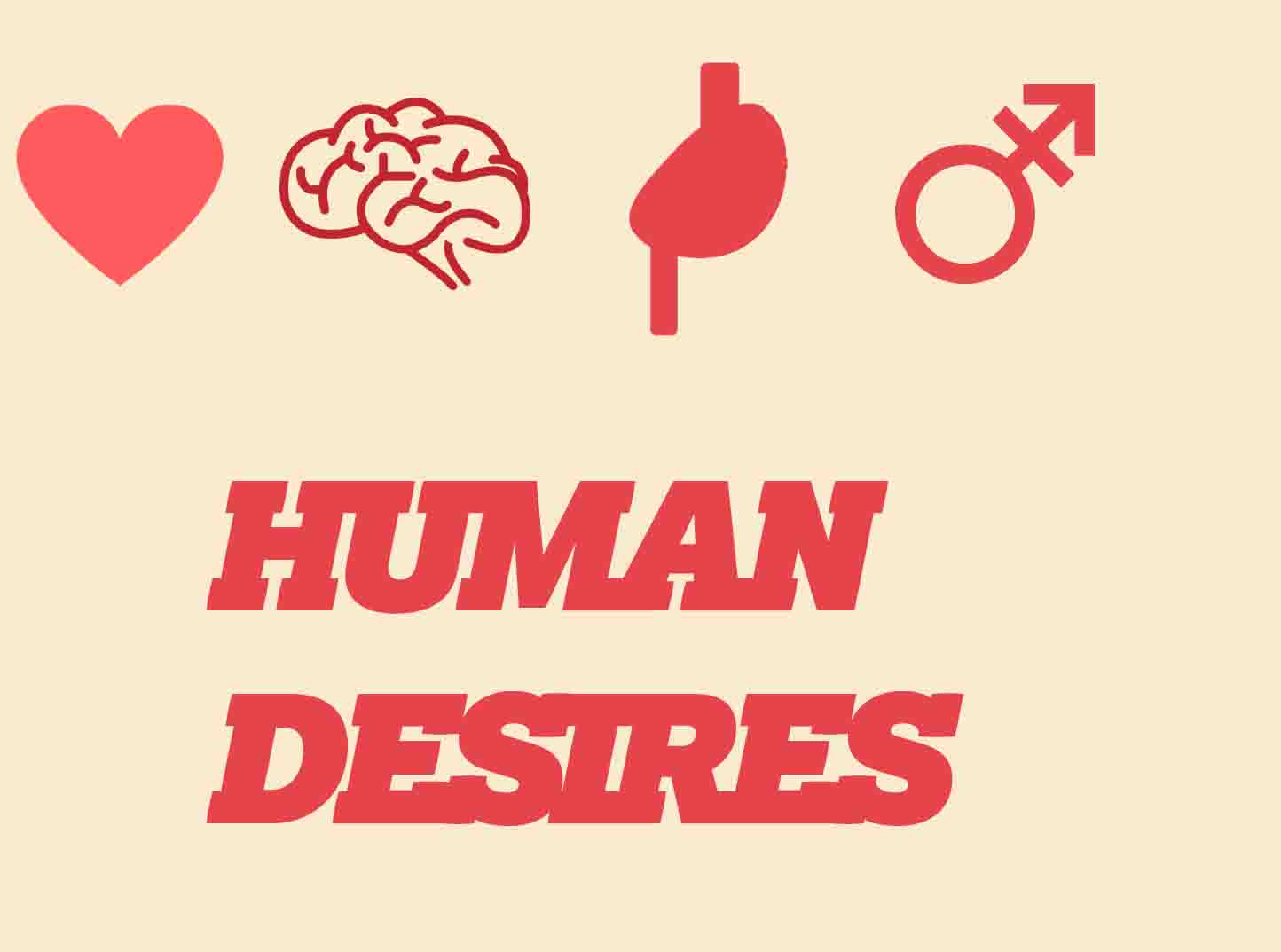
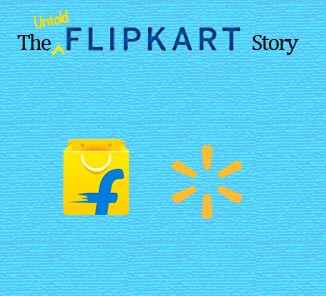
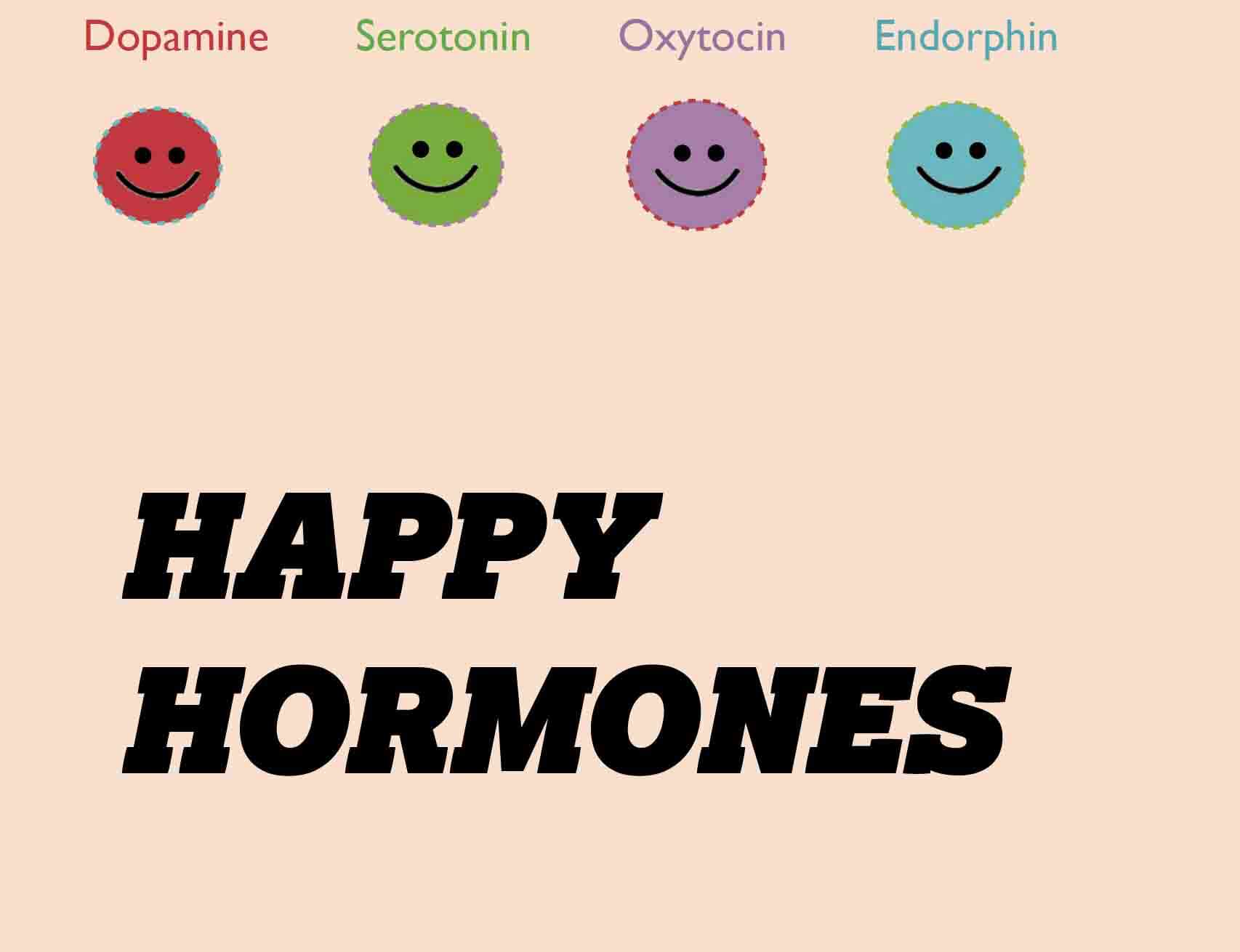
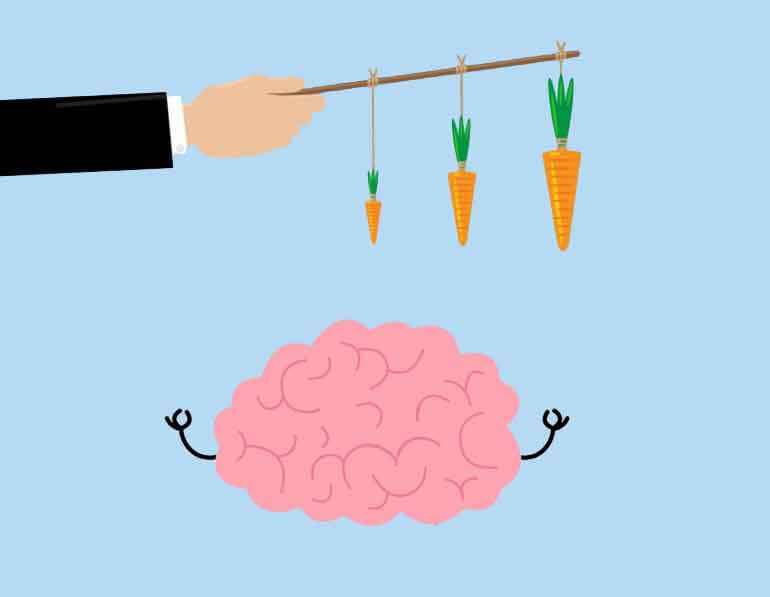

 Swipe for more stories
Swipe for more stories
Comments